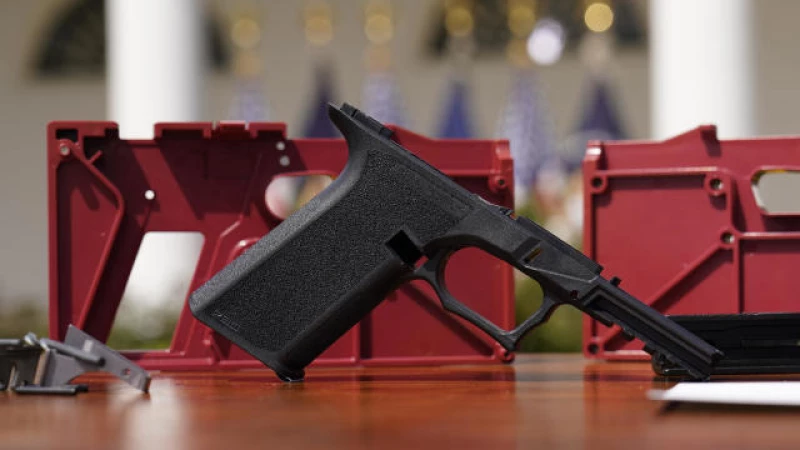Supreme Court to Review Biden Administration Rule on Ghost Guns
The Supreme Court has agreed to review a lower court decision that struck down a rule from the Biden administration aimed at addressing the proliferation of crimes involving "ghost guns."
The regulation in question, implemented by the Bureau of Alcohol, Tobacco, Firearms and Explosives in April 2022, imposed a series of requirements on manufacturers and sellers of ghost guns. These firearms are unserialized and can be assembled from kits sold online.
The ATF's rule redefined "firearm" under the Gun Control Act to include certain weapon parts kits and clarified that it encompasses partially completed parts like the frame or receiver. This means that covered manufacturers and sellers must now obtain licenses, mark their products with serial numbers, conduct background checks, and maintain purchase records - all requirements that apply to firearms made and sold in the U.S.
The rule covers all types of ghost guns, including those made with 3D printers or sold as assembly kits.
A group of gun owners, advocacy groups and ghost gun distributors filed a lawsuit against ATF in August 2022, arguing that the two portions of its rule, regarding the term "frame or receiver" and definition of "firearm," exceeded its authority. A federal district court in Texas sided with the challengers, finding that the Gun Control Act doesn't "cover weapon parts, or aggregations of weapon parts," regardless of whether they can be assembled into "something that may fire a projectile."
The district court invalidated the entire regulation, including those that were not at issue in the lawsuit.
The Biden administration appealed, and the U.S. Court of Appeals for the 5th Circuit halted the lower court's order as to the unchallenged portions of the rule. The Supreme Court then paused the full decision in a 5-4 ruling, allowing ATF to enforce the restrictions while legal proceedings continued. Chief Justice John Roberts and Justice Amy Coney Barrett joined with the three liberal justices in the majority.
The 5th Circuit later ruled that the Gun Control Act's definition of "firearm" doesn't encompass weapon parts kits, and invalidated the provision of the rule involving the term "frame or receiver."
The Justice Department asked the Supreme Court to review the appeals court's decision in February, arguing that it contradicts the plain text of the Gun Control Act.
Supreme Court Hears Arguments on Ghost Guns
The Supreme Court recently heard arguments regarding the sale of weapon parts kits that can be easily assembled into fully functional firearms, known as "ghost guns." The Biden administration raised concerns about the potential dangers posed by these untraceable firearms entering communities without background checks or serial numbers.
According to the administration, these kits can be converted into firearms in as little as 21 minutes, allowing prohibited individuals such as felons and minors to bypass gun laws. They warned that the 5th Circuit's ruling, if upheld, could lead to a surge in ghost guns on the streets, making it harder for law enforcement to solve crimes.
The Biden administration also highlighted a significant increase in the number of ghost guns recovered by law enforcement in recent years, emphasizing the threat to public safety. On the other hand, challengers to the ATF's rule argued that the expanded definition of firearms in the rule goes against the Gun Control Act's original intent.
This case has raised important questions about the regulation of DIY gun kits and the potential loopholes they create in existing gun laws.
Accusations have been made against the Biden administration for attempting to dismantle the industry that serves law-abiding citizens who create their own firearms. The critics argue that if the current definition of a "firearm" is deemed inadequate, it should be a matter for Congress to resolve.
"ATF does not have the authority to broaden the scope of the GCA without approval from Congress," the challengers contended.
This case is scheduled to be heard in the upcoming term of the Supreme Court, commencing in October.







